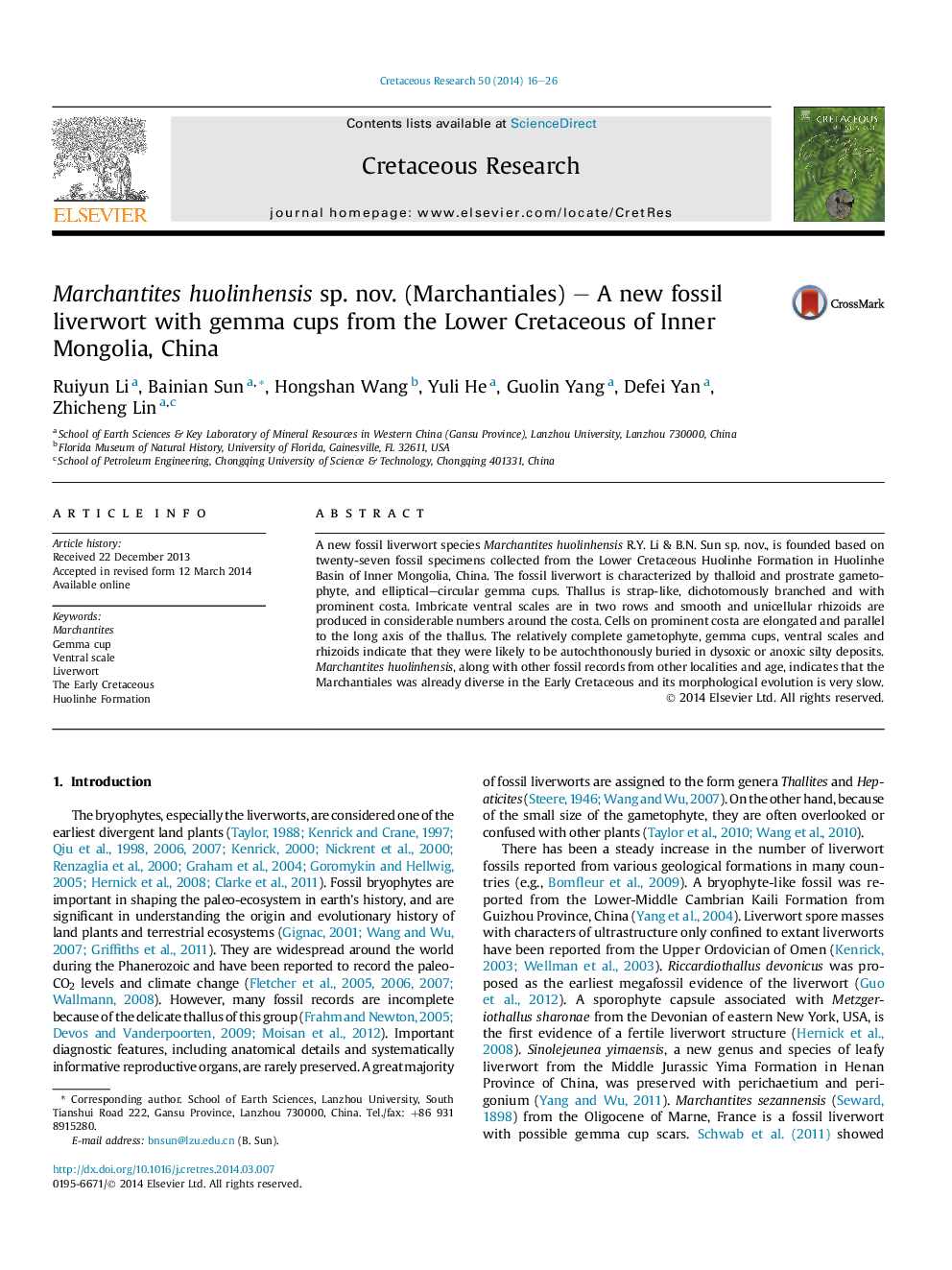| Article ID | Journal | Published Year | Pages | File Type |
|---|---|---|---|---|
| 6448402 | Cretaceous Research | 2014 | 11 Pages |
Abstract
A new fossil liverwort species Marchantites huolinhensis R.Y. Li & B.N. Sun sp. nov., is founded based on twenty-seven fossil specimens collected from the Lower Cretaceous Huolinhe Formation in Huolinhe Basin of Inner Mongolia, China. The fossil liverwort is characterized by thalloid and prostrate gametophyte, and elliptical-circular gemma cups. Thallus is strap-like, dichotomously branched and with prominent costa. Imbricate ventral scales are in two rows and smooth and unicellular rhizoids are produced in considerable numbers around the costa. Cells on prominent costa are elongated and parallel to the long axis of the thallus. The relatively complete gametophyte, gemma cups, ventral scales and rhizoids indicate that they were likely to be autochthonously buried in dysoxic or anoxic silty deposits. Marchantites huolinhensis, along with other fossil records from other localities and age, indicates that the Marchantiales was already diverse in the Early Cretaceous and its morphological evolution is very slow.
Keywords
Related Topics
Physical Sciences and Engineering
Earth and Planetary Sciences
Palaeontology
Authors
Ruiyun Li, Bainian Sun, Hongshan Wang, Yuli He, Guolin Yang, Defei Yan, Zhicheng Lin,
